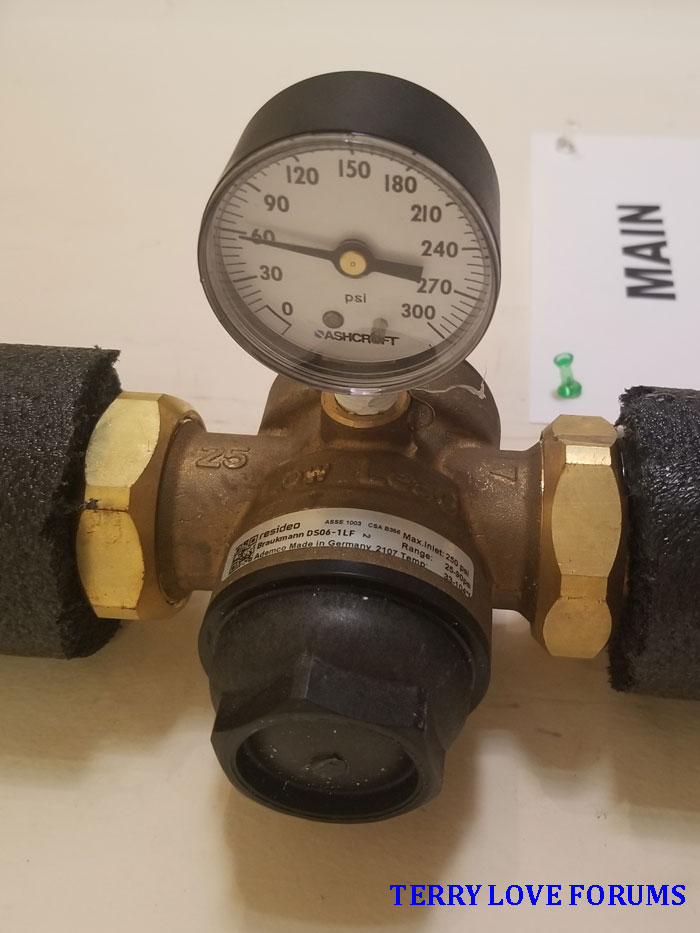I recently installed a new water mains & a PRV to bring the pressure from 85psi down to 55psi. After installing it, I noticed the sound while any faucet was on, like a dim reverberation, or a helicopter at a distance. The reverberation peaks & then stops once the faucet is shut off. I'm guessing it's the rubber releasing/equalizing pressure on and off till it balances.
Originally, the PRV was set to 45psi & the sound was worse. After setting it to 55psi, it's improved quite a bit, but it's still annoying (it can be heard from the kitchen & bathroom).
Is there any good way to dampen PRV reverberation? I'm considering installing arrestors on either side of the PRV, but don't know if arrestors are pre-pressurized (& if so, whether they won't dampen vibrations). Alternatively, I can jimmy rig some capsules on either side the PRV & fill them with something compressible & durable... dunno, just thinking aloud.
Any suggestions for reducing PRV vibrations?
Originally, the PRV was set to 45psi & the sound was worse. After setting it to 55psi, it's improved quite a bit, but it's still annoying (it can be heard from the kitchen & bathroom).
Is there any good way to dampen PRV reverberation? I'm considering installing arrestors on either side of the PRV, but don't know if arrestors are pre-pressurized (& if so, whether they won't dampen vibrations). Alternatively, I can jimmy rig some capsules on either side the PRV & fill them with something compressible & durable... dunno, just thinking aloud.
Any suggestions for reducing PRV vibrations?

